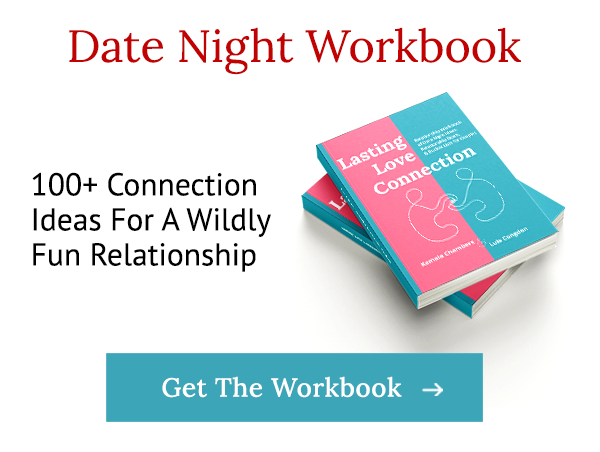I have no sex drive and it’s ruining my relationship – Why?
There could be a number of reasons why you’re not interested in sex. It could be a physical issue, such as hormones or medications, or a mental health issue, such as anxiety or depression. It could also be a sign that something is wrong in your relationship.
If you’re not feeling close to your partner, or if there’s been a lot of conflict, you might lose interest in sex.
Further, having no sex drive can even be caused by questioning your sexual orientation, feeling disconnected from your life purpose, or having poor boundaries.
It’s no secret that sex is an important part of any relationship. It’s a physical and emotional way to connect with your partner and can be a fun and pleasurable experience. But what happens when you lose your sex drive? Can a lack of sex kill a relationship?
For many people, low libido can be a real problem. It can cause tension and conflict in a relationship and make you feel anxious, depressed, and even undesirable. If you’re struggling with a low sex drive, there are several things you can do to try to improve the situation.
First, it’s important to talk to your partner about your feelings. They may be feeling just as frustrated as you do.
Table of Contents
What if you don’t have sexual desire for your partner?
As any relationship expert will tell you, sexual desire is an important part of a healthy long-term relationship. Not only does it add excitement and spice to your life, but it also helps to strengthen the bond between you. Unfortunately, there are times when one partner may not feel sexual desire for the other. This can be frustrating and confusing, but there are a few things you can do to try to overcome the problem.
First, try to talk to your partner about the problem. Often, communicating about sexual desire can help to increase closeness. Second, it’s important to remember that sexual desire is often fluid. So, even if you don’t feel desire today, that doesn’t mean you won’t feel it tomorrow. Finally, don’t be afraid to experiment. Trying new things in the bedroom may help to reignite sexual desire. You can overcome this obstacle with a little effort and enjoy a fulfilling sexual relationship with your partner.
Can a relationship survive without sex?
A lack of sex often leads to tension and conflict. If you’re wondering, ‘can lack of sex ruin a relationship?’ the answer is yes. Studies have shown that couples who have sex less than once a week are likelier to report being unhappy with their relationship. This is likely because sexual intimacy helps to build trust and communication. Without it, couples may start to feel disconnected from one another. Additionally, a lack of sex can often be a symptom of other underlying issues, such as a lack of communication or intimacy. Talk to your partner about what’s wrong if you’re not having sex as often as your partner would like.
How rejection can hurt your relationship

If you don’t have a sex drive, your partner may feel rejected.
Rejection hurts because it feels like the other person is saying that we’re not good enough, that we’re not worth their time or attention. It can make us feel lonely, isolated, and unworthy. And when we are feeling rejected by someone we love, it can be especially painful.
Rejection can also damage our self-esteem and make us feel insecure in our relationships. We may start to doubt ourselves. This can lead to a cycle of rejection and insecurity that’s difficult to break free from.
The most common sexual problem
Many sexual problems can affect both men and women. Some of the most common include difficulties with arousal, orgasm, and pain during sex.
Various factors, such as stress, anxiety, relationship problems, or medical conditions, can often cause these problems.
However, there are many ways to address sexual problems, and most people can find relief with the help of a qualified naturopath or healthcare professional. If you’re experiencing any difficulties with your sexual health, don’t hesitate to reach out for help.
Many resources are available to you, and most problems can be resolved with the right treatment.
What health conditions can cause lower sexual desire?
Many health conditions can lead to you not wanting sex anymore. In fact, hypoactive sexual desire disorder (HSDD) is a diagnosable condition that causes low libido.
HSDD symptoms can include a lack of interest in sex, difficulties becoming aroused, and problems reaching orgasm. HSDD can be caused by both physical and psychological factors.
Physical causes of low desire may include hormone imbalances, certain medications, and other chronic illnesses and health challenges.
Also, if you still struggle with a low sex drive, talk to a naturopath or medical doctor about other potential solutions.
Hormone levels impact sex drive
Hormones can affect your sex drive in a variety of ways. For example, you may have a lower libido if your hormone levels are low.
On the other hand, if your hormone levels are too high, you may have a higher sex drive. Your hormones can also affect other aspects of sexual function, such as arousal and orgasm.
Talk to a men’s or women’s health doctor or naturopath if you are concerned about how low libido may affect your sex drive. They can help assess your hormone levels and recommend treatment options if necessary.
Ultimately, by understanding how hormone levels can impact your sex drive, you can take steps to ensure that you have a healthy and enjoyable sex life.
I have no sex drive, and my husband is mad.

While it’s normal for one person to have a higher sex drive, it can be difficult to deal with. Many causes of low sex drive include stress, traumatic life events, anxiety, and mental health challenges.
Also, painful sex, hormonal imbalance, pregnancy, and menopause can lead to low libido.
If you are experiencing a low sex drive, you can do a few things to increase your libido.
First, make sure you are getting enough rest and exercise. Both of these things can help to increase energy levels and reduce stress. Second, talk to your doctor about any medications you are taking that may affect your libido.
Finally, spend some time exploring your sexuality. This may involve reading erotic stories or turning up your sexual vibrancy. Understanding what turns you on makes you more likely to get in the mood for sex.
If there are signs your husband isn’t attracted to you or he doesn’t love you anymore, the Date Night Workbook will help you reignite passion and intimacy.
Women’s health issues causing low libido
One of women’s most common causes of low libido is giving birth. Birthing can be physically and emotionally demanding and often affects a woman’s sexual desire. Also, postpartum can lead to painful sex.
Further, many women with postpartum hormonal changes can also have low libido.
Other women’s health and mental health issues that can cause low libido include anxiety, depression, stress, and fatigue.
What can you do if you and your partner have mismatched libidos?
Whether you’re a man or woman, mismatched libidos are normal in relationships. If your partner has a higher libido, explore what each of you needs.
There are a few things that you can do to try to bridge the libido gap. First, try to be understanding and respectful of each other’s needs. It can be helpful to set aside time for intimacy, even if it doesn’t involve sex.
This can be a time to cuddle, kiss, or simply spend time together without distractions. You may also want to experiment with different types of sexual activity to find something enjoyable for you both.
Communication is key in any relationship, but it is especially important when your partner has a higher libido. By talking openly and honestly with each other, you can find a way to bridge the gap and maintain a healthy relationship.
I have no sex drive, and it’s ruining my relationship. What steps can I take?

It’s normal to lose your desire for sex. In fact, it’s common for people’s sex drives to ebb and flow throughout their lives.
However, a healthy sex life is an important part of a healthy relationship.
If you’re wondering, ”can lack of sex destroy a relationship”, the answer is yes.
If you’re regularly losing interest in sex and it’s causing problems in your marriage, it’s time to seek help.
There are several steps you can take to boost your sex drive.
First, make sure you’re getting enough sleep and exercise. These things can help improve your overall energy levels and mood, making you more interested in sex.
Additionally, try to connect with your partner on a non-physical level by doing things you enjoy together. This is one of the best ways to boost intimacy and make sex more enjoyable.
Finally, don’t be afraid to discuss any issues affecting your desire for sex. Talking to a therapist or doctor can be extremely helpful if you’re feeling stressed or have other problems causing low libido.
How to start enjoying sex more?
When it comes to sex, there’s no one-size-fits-all solution. What works for one couple might not work for another. That said, there are a few general tips that can help to spice up your sex life.
1. Focus on pleasure.
First, try to relax and enjoy the journey instead of thinking of sex as a goal-oriented activity. This can help you to feel more present and connected with your partner.
While many techniques can help make sex more enjoyable, one of the most effective is sensate focus.
This approach focuses on touch, smell, and sound sensations during sex. You can connect with your partner deeper by paying attention to these physical cues.
In addition, sensate focus can help to increase sexual pleasure by heightening your senses and making you more aware of your body. As a result, focusing on pleasure can help to create a more enjoyable and satisfying sexual experience.
2. Share your desire.

Many people want to enjoy sex more, but they don’t know where to start. For some people, the key is simply communicating with their partner about what they like and don’t like.
Open communication is essential for a healthy and satisfying sex life. By following these tips, you can help to ensure that your sex life is anything but boring.
Talk to your partner about your sexual desires and fantasies. Discussing your needs and wants can help make sex more enjoyable for both of you.
Further, getting to know your partner deepens emotional intimacy between you.
Play the Intimacy Game with your partner.
3. Make time for intimacy.
Sex isn’t just about intercourse – it’s also about intimacy and closeness.
Perhaps you feel like your husband wants sex but not intimacy
If you want to feel more desire, make time for cuddling, kissing, and other forms of non-sexual touching. This can help create a stronger emotional bond between you and your partner, which can, in turn, lead to more desire.
Schedule time for sex and make it a priority. Time pressure can cause low desire. So, set aside time specifically for sex. Scheduling time can help you relax and enjoy the experience more.
Plus, studies show that foreplay should last at least 20 minutes.
Women and foreplay
It’s no secret that women generally take longer to get aroused than men. And while there are a number of reasons for this (including everything from biology to societal expectations), it’s perfectly normal for women to need more time for foreplay.
If you’re not getting enough time for foreplay, it can make sex less enjoyable.
Foreplay helps to increase blood flow to the genitals, which can help to boost libido. In addition, it helps to release the hormone oxytocin, which can increase connection. Foreplay can also help reduce anxiety and stress, both of which can interfere with sexual arousal.
But women are not the only ones who benefit from having plenty of time for sex. Creating more time allows more space for intimacy.
Taking time to explore each other’s bodies can go a long way in maintaining a healthy and satisfying sex life.
4. Try new things.
Trying new things can help to keep sex exciting and fresh.
You may need to experiment with different sexual activities to find what feels good to you.
Experiment with different types of touching, kissing, and other sexual activities. Trying new things can excite your sex life and help you discover what you enjoy.
Don’t just focus on receptive sex. If you’re not in the mood for penetration, that doesn’t mean you can’t still enjoy sex.
Oral sex, manual stimulation, and other forms of non-penetrative sex can be just as pleasurable (and sometimes even more so). So, explore other ways of being sexual with your partner.
What if you want to spice up your sex life?
Everyone knows that maintaining a healthy sex life is important to any marriage. But sometimes, even the most ardent lovers can find themselves in a rut.
If you’re looking for ways to spice things up in the bedroom, try new positions, a bubble bath together, sex therapy, or role-playing. New sexual activity can allow you to tap into your hidden desires and explore different aspects of your sexuality.
Plus, it’s a great way to let your partner know what you’re thinking about. Just remember to keep it fun and respectful. After all, that’s what good sex is all about.
5. Share non-sexual touch.
In our fast-paced, modern lives, it’s easy to forget the importance of physical touch. But the truth is that non-sexual touch is essential for maintaining a healthy marriage.
For one thing, physical affection helps to build intimacy and trust between partners. It also helps to reduce stress and anxiety and can even boost immunity.
Furthermore, research has shown that physical touch can increase attraction and desire. So if you’re struggling with a low sex drive, increasing physical affection with your partner may be just what you need. Of course, it’s important not to force anything.
However, most people are touch deprived, and it can be challenging when you only receive touch when your partner wants sex. Try to find ways to add in physical intimacy without an agenda.
If a connection is missing, it might be one of the reasons you have low sexual desire. Taking sex off the table can create more space for bonding.
6. Feel better within.

Why would you want to have sex if you don’t feel good in your body?
Body image and self-esteem are intimately linked with libido. People with a negative body image often feel self-conscious and anxious during sex, leading to difficulty becoming aroused, maintaining an erection, or orgasm.
In contrast, people who feel good in their bodies are more likely to have more libido, be less inhibited during sex, and experience greater satisfaction from sexual activity. So, if you want to improve your sex life, it’s important to focus on developing a healthy relationship with your body.
Here are some tips:
Become more aware of your body
How it feels, looks, and smells. Touch yourself, including in areas you typically find taboo or embarrassing.
This will help you become more comfortable in your skin and increase your confidence.
Challenge negative thoughts about your body
When you have negative thoughts about your body, take a step back and question where they’re coming from. Are they based on reality or distorted thinking? Once you challenge these thoughts, they’ll start to lose their power over you.
Accept your body as it is
It’s normal to be self-critical. No one is perfect, and our bodies are constantly changing. Accepting your body as it is today will help you feel more comfortable in your skin and improve your body image.
These three tips are just a starting point – you can do many other things to improve your relationship with your body and boost your sexual well-being. So get started today and see how good sex can get!
7. Focus on the present moment.
Instead of worrying about how you look or whether you’re doing things right, try to focus on the sensations you’re feeling. This can help you relax and enjoy the experience more.
You can start enjoying sex more than ever with a little effort!
Get on the same page sexually
If you want to have sex, but your partner wants it more, there are a few things you can do to connect.
Desire comes from many different places – physical, psychological, and social factors all play a role.
So if your desire for sex is lower than your partner’s, it doesn’t necessarily mean there’s anything wrong with you.
There are many perfectly normal reasons why someone might have a lower libido.
Talk to your partner about the specific things that get you in the mood for sex. When you know what turns you on, you can initiate sex more often or find ways to incorporate those things into your sex life.
By effectively communicating with your partner and finding ways to connect both physically and emotionally, you can get on the same page sexually – even if your levels of desire aren’t the same.
Additionally, seeking the support of a professional like a relationship coach will guide you through how to navigate a “libido gap” in the bedroom.
Get intimacy exercises and connection rituals in the Intimacy Workshop.







0 Comments